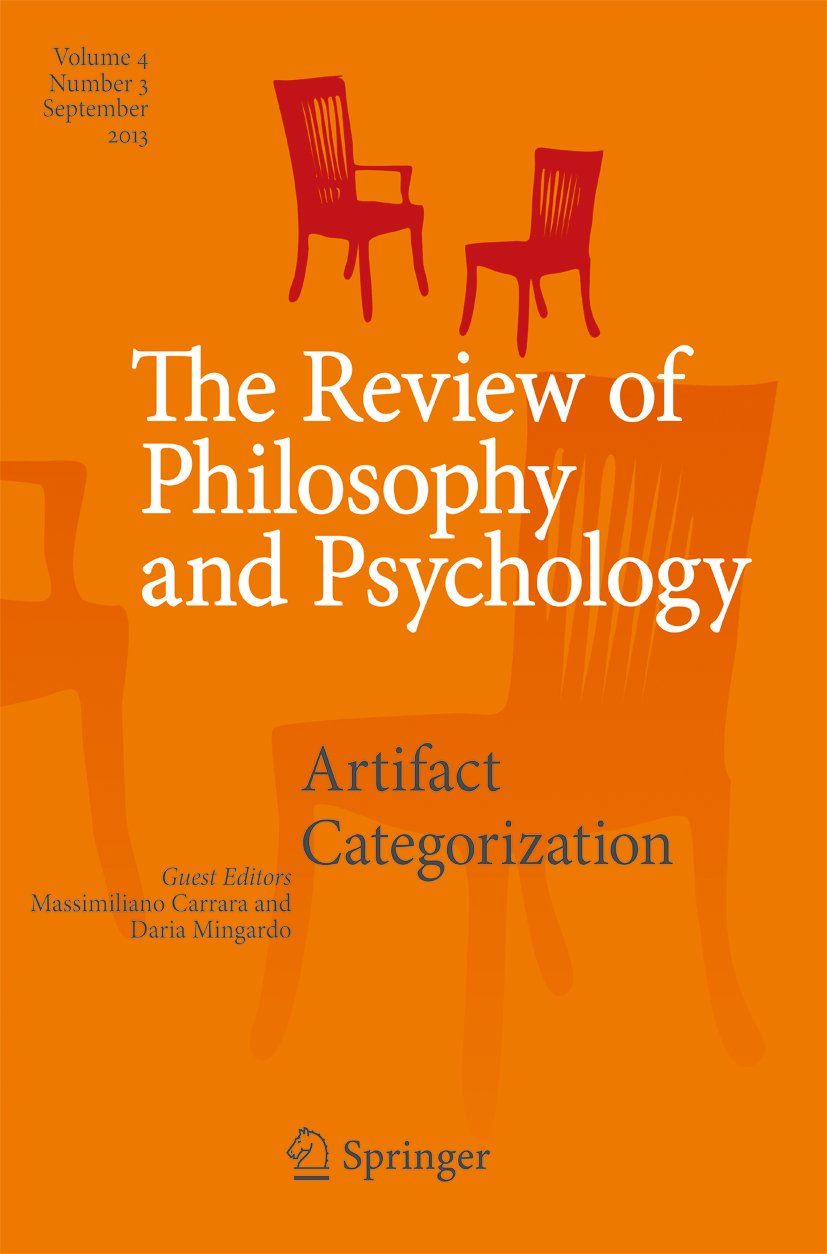link.springer.com/article/10.1007/s13164-023-00704-x
Preview meta tags from the link.springer.com website.
Linked Hostnames
23- 150 links tolink.springer.com
- 89 links toscholar.google.com
- 73 links todoi.org
- 9 links towww.springernature.com
- 3 links toscholar.google.co.uk
- 3 links towww.ncbi.nlm.nih.gov
- 2 links tocitation-needed.springer.com
- 2 links tosupport.springernature.com
Thumbnail

Search Engine Appearance
https://link.springer.com/article/10.1007/s13164-023-00704-x
Literalism in Autistic People: a Predictive Processing Proposal - Review of Philosophy and Psychology
Autistic individuals are commonly said – and also consider themselves – to be excessively literalist, in the sense that they tend to prefer lit
Bing
Literalism in Autistic People: a Predictive Processing Proposal - Review of Philosophy and Psychology
https://link.springer.com/article/10.1007/s13164-023-00704-x
Autistic individuals are commonly said – and also consider themselves – to be excessively literalist, in the sense that they tend to prefer lit
DuckDuckGo
Literalism in Autistic People: a Predictive Processing Proposal - Review of Philosophy and Psychology
Autistic individuals are commonly said – and also consider themselves – to be excessively literalist, in the sense that they tend to prefer lit
General Meta Tags
182- titleLiteralism in Autistic People: a Predictive Processing Proposal | Review of Philosophy and Psychology
- charsetUTF-8
- X-UA-CompatibleIE=edge
- applicable-devicepc,mobile
- viewportwidth=device-width, initial-scale=1
Open Graph Meta Tags
6- og:urlhttps://link.springer.com/article/10.1007/s13164-023-00704-x
- og:typearticle
- og:site_nameSpringerLink
- og:titleLiteralism in Autistic People: a Predictive Processing Proposal - Review of Philosophy and Psychology
- og:descriptionAutistic individuals are commonly said – and also consider themselves – to be excessively literalist, in the sense that they tend to prefer literal interpretations of words and utterances. This literalist bias seems to be fairly specific to autism and still lacks a convincing explanation. In this paper we explore a novel hypothesis that has the potential to account for the literalist bias in autism. We argue that literalism results from an atypical functioning of the predictive system: specifically, an atypical balance between predictions and error signals in language processing may make individuals more uncertain about their own predictions. Such uncertainty is then often resolved by resorting to the safest interpretation, that is, the literal one. We start by reviewing existing explanations of other autistic traits that appeal to predictive processing. We then apply these insights to language, by showing that predictions play a key role in everyday comprehension and that a low level of confidence in one’s own predictions is likely to escalate comprehension difficulties. Finally, we take a deeper look at non-literal uses of language by discussing the case of metaphors, to illustrate how a predictive processing account offers a promising explanation of the literalist bias in autism.
Twitter Meta Tags
6- twitter:site@SpringerLink
- twitter:cardsummary_large_image
- twitter:image:altContent cover image
- twitter:titleLiteralism in Autistic People: a Predictive Processing Proposal
- twitter:descriptionReview of Philosophy and Psychology - Autistic individuals are commonly said – and also consider themselves – to be excessively literalist, in the sense that they tend to prefer literal...
Item Prop Meta Tags
3- position1
- position2
- position3
Link Tags
9- apple-touch-icon/oscar-static/img/favicons/darwin/apple-touch-icon-6ef0829b9c.png
- canonicalhttps://link.springer.com/article/10.1007/s13164-023-00704-x
- icon/oscar-static/img/favicons/darwin/android-chrome-192x192.png
- icon/oscar-static/img/favicons/darwin/favicon-32x32.png
- icon/oscar-static/img/favicons/darwin/favicon-16x16.png
Emails
1Links
346- http://creativecommons.org/licenses/by/4.0
- http://scholar.google.com/scholar_lookup?&title=%C3%AF%C2%BB%C2%BFMetaphor%3A%20for%20adults%20only%3F&journal=Belgian%20Journal%20of%20Linguistics&doi=10.1075%2Fbjl.25.04pou&volume=25&issue=1&pages=51-79&publication_year=2011&author=Pouscoulous%2CN
- http://scholar.google.com/scholar_lookup?&title=A%20comparative%20study%20of%20figurative%20language%20in%20children%20with%20autistic%20spectrum%20disorders&journal=Child%20Language%20Teaching%20and%20Therapy&doi=10.1191%2F0265659004ct261oa&volume=20&issue=1&pages=13-32&publication_year=2004&author=MacKay%2CG&author=Shaw%2CA
- http://scholar.google.com/scholar_lookup?&title=A%20distinction%20between%20linguistic%20and%20social%20pragmatics%20helps%20the%20precise%20characterization%20of%20pragmatic%20challenges%20in%20children%20with%20autism%20spectrum%20disorders%20and%20developmental%20language%20disorder&journal=Journal%20of%20Speech%2C%20Language%2C%20and%20Hearing%20Research&doi=10.1044%2F2020_JSLHR-19-00263&volume=63&issue=5&pages=1494-1508&publication_year=2020&author=Andr%C3%A9s-Roqueta%2CC&author=Katsos%2CN
- http://scholar.google.com/scholar_lookup?&title=A%20new%20advanced%20test%20of%20theory%20of%20mind%3A%20evidence%20from%20children%20and%20adolescents%20with%20Asperger%20syndrome&journal=Journal%20of%20Child%20Psychology%20and%20Psychiatry&doi=10.1111%2F1469-7610.00042&volume=43&issue=4&pages=517-528&publication_year=2002&author=Kaland%2CN&author=M%C3%B8ller-Nielsen%2CA&author=Callesen%2CK&author=Mortensen%2CEL&author=Gottlieb%2CD&author=Smith%2CL